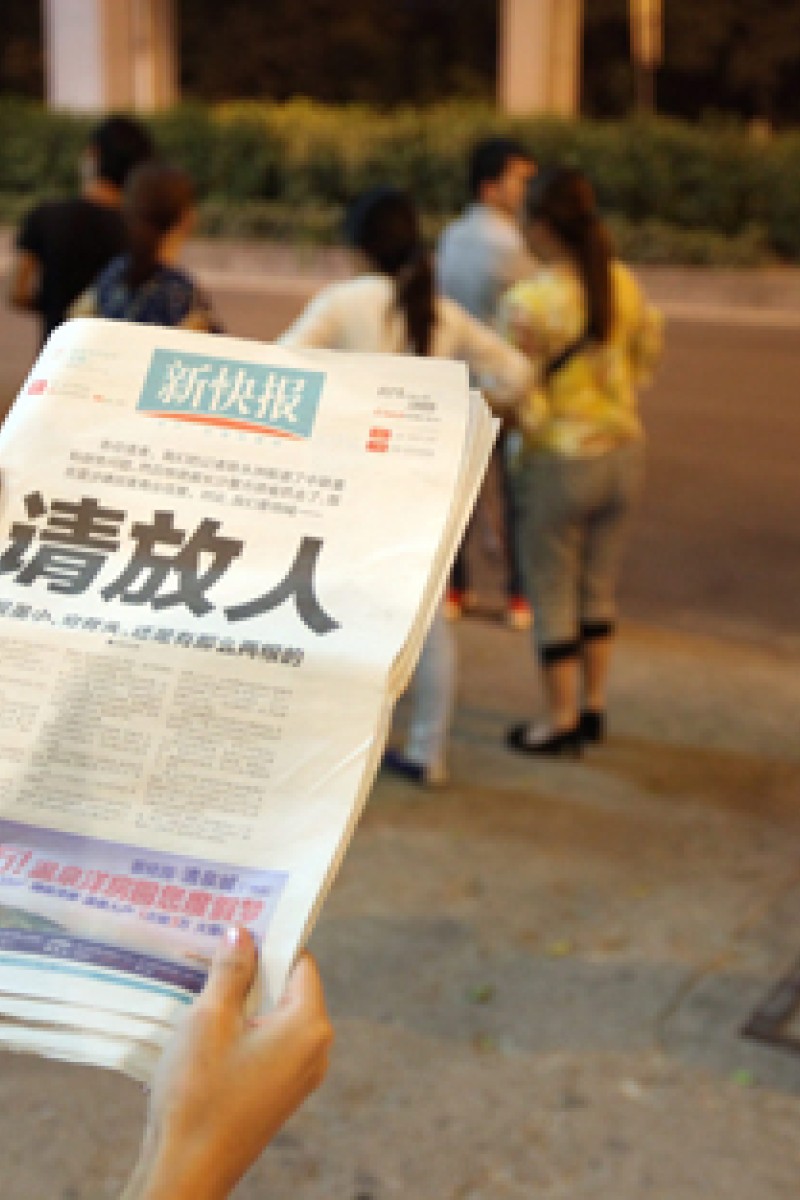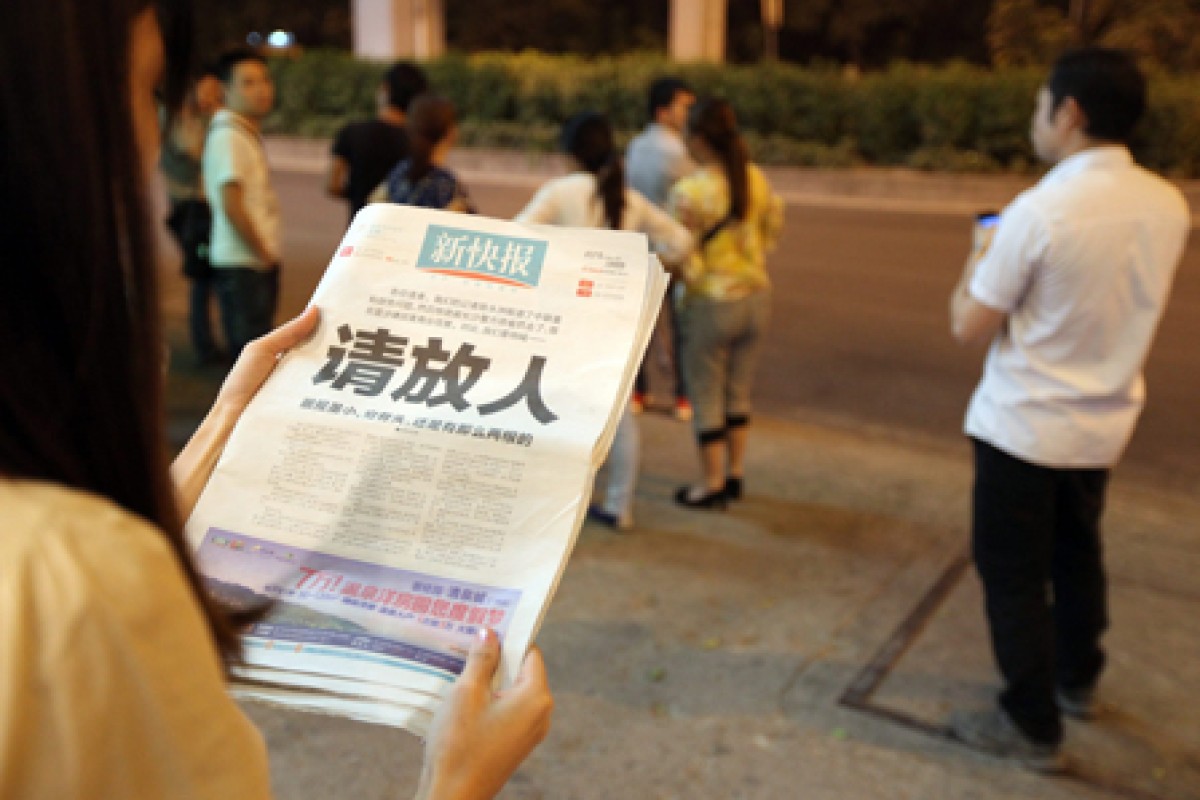
Resistance to censors grows
 The front page of New Express, which urged police to release journalist Chen Yongzhou.
The front page of New Express, which urged police to release journalist Chen Yongzhou.New Express, in Guangdong, had surprisingly taken on the authorities after its reporter, Chen Yongzhou, was arrested on October 18 on "suspicion of damaging commercial reputation".
Chen had claimed in a series of articles that Zoomlion, China's second-largest construction equipment maker, had exaggerated its sales figures.
Zoomlion denied the claims. It said the articles hurt its reputation.
Twice the newspaper ran front-page stories, in open defiance of the authorities, calling for the release of Chen. Screen shots of the front page were widely circulated on the country's social media websites, sparking widespread public sympathy online.
However, Chen then appeared on national television and admitted that he had been paid to make up stories about Zoomlion. He also claimed he did not even read a few of the reports written in his name by a third party. As the confession was made a few days after Chen had been detained by police, some people have questioned the validity of his statement.
His newspaper has apologised for its campaign and admitted it took "improper actions, seriously damaging the credibility of the media".
This kind of open resistance by mainland media against intimidation from authorities is rare, considering China's strict censorship rules.
As China's status and economy grow, the government is keen to retain its power, and eliminate sources that could threaten its authority. Beijing closely monitors the media, and tries to remove any content that it fears could lead to mass protests.
Currently, 18,000 websites are blocked on the mainland. Popular sites such as Google, YouTube and Facebook are banned to limit the sharing of overseas material among mainland internet users.
To operate normally in China, most media agencies comply with the government's regulations. This suppression of freedom of speech has been widely criticised by the international community.
Yet there now seems to be growing public dissent over government censorship.
In January, crowds gathered in Guangzhou to support journalists protesting against meddling by government officials. This happened after Southern Weekly claimed one of its editorials had been changed under pressure from propaganda officials.
Media censorship helps the central government maintain its power and the country's stability, at the expense of freedoms that can help a society move forward.
I believe the government will loosen its grip on the media one day, but the big question is: when will it happen?
You might also like:
- With more people living longer on the mainland, a question emerges: who should take care of them?